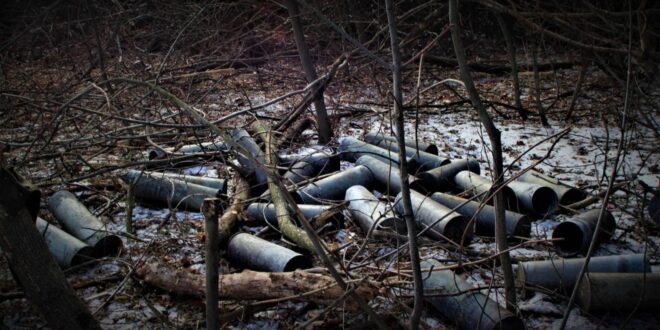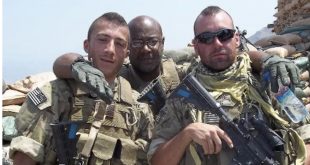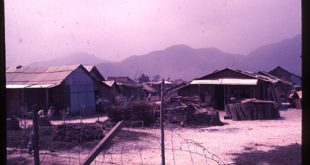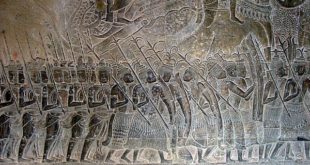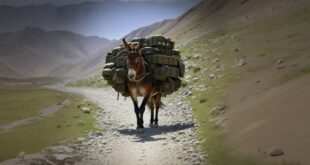At the end of February, Ivan, who lives in the settlement of Volchikha in Siberia’s Altai region, got a phone call from his best friend, a mobilized soldier named Andrei who was serving in Ukraine. Although the two had been in regular contact since Andrei was called up, it had been more than a week since they had last spoken.
“I’ll never forget that phone call,” Ivan told RFE/RL. “It was the first time I’d heard his voice trembling: ‘Man, I don’t know how I survived. I’m the only one of my group still alive.’ A grown man sobbed for nearly 10 minutes while he told how his comrades were killed before his eyes, including some who were just 20 years old.”
READ MORE about the battle for Bakhmut
For several months, Russia and Ukraine have been locked in intense trench warfare along a front line of more than 120 kilometers in Ukraine’s Donbas region, including cities whose names have become globally known, such as Bakhmut, Avdiyivka, and Maryinka.
The fighting, which has involved waves of mobilized Russian soldiers and fighters from the ostensibly private Wagner military company being hurled against hardened Ukrainian fortifications, has been likened to the brutal, grinding engagements on the western front in World War I. Even Wagner’s founder, the Kremlin-connected businessman Yevgeny Prigozhin, has called the Bakhmut offensive a “meat grinder.”
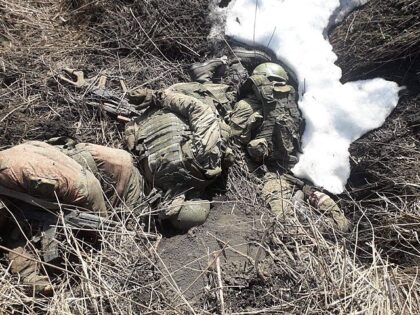
“He saw them die and could do nothing to help,” Ivan said of his friend, Andrei. “He survived that meat grinder by some miracle. In fact, it was announced he’d won a medal, but he was only thinking about one thing — how to get out of there.”
The Russian government has strictly limited reporting and information from the war zone. However, some accounts by mobilized Russian soldiers and their friends and relations back in Russia have begun trickling out, painting a picture of ill-trained and poorly equipped soldiers taking high casualties while storming Ukrainian positions. Because of the Russian government’s track record of prosecuting those who have spoken out about the war, RFE/RL has concealed the identities of the persons in this report.
‘Dead Or Abandoned’
A woman from the Siberian city of Angarsk told RFE/RL that her mobilized husband, who telephoned from a hospital where he was being treated for shrapnel wounds, told her a story similar to Ivan’s about an attack that left almost his entire unit dead.
“He said that early on the morning of March 1, his group of 25 men was taken out by forces of the [Moscow-backed separatists in the Donetsk region] in two armored personnel carriers and dumped in an open field,” the woman recalled. “And then [the separatist soldiers] just left. They were there without any support, in body armor you could put your finger through. They didn’t even manage to look around before they came under heavy fire…. They were running for several hours under shellfire.”
“He knows about two other wounded men,” the woman added. “All the others are either dead or abandoned there.”
Moscow has only acknowledged about 6,000 killed since it invaded Ukraine in February 2022, but the real figure is much higher. Western analysts put Russia’s total military casualties at nearly 200,000 killed and wounded.
Ivan says he wavered for some time before deciding to go public with details of his conversations with Andrei. In the end, however, he reasoned that “there was no point in being silent and waiting to see if everything would turn out OK.”
Nothing But Meat
Andrei, 32, was called up in the fall of 2022, shortly after President Vladimir Putin announced a military mobilization in the wake of a stunning Ukrainian counteroffensive in the northeast that sent Russian forces reeling in confusion and resulted in the liberation of about 12,000 square kilometers. He served as a draftee in the Russian Army more than a decade ago.
He spent the first three months after he was mobilized at a base in the western Siberian city of Omsk, Ivan says. “During that whole time, he fired one magazine of bullets,” Ivan recounted. “They stood in formation and marched around.”
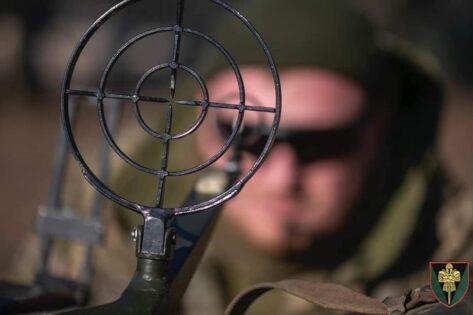
Next, his unit was sent to the Russian-occupied Ukrainian region of Crimea for “territorial defense.” But only one month later, they were hurriedly sent to the partially occupied Zaporizhzhya region on the southern Ukrainian mainland.
“There they spent a week sitting in trenches and then they were shipped in the direction of Vuhledar,” Ivan said, referring to a coal-mining town in Ukraine’s Donetsk region. “In Vuhledar, it was a concrete mess — fortifications and trenches. Everyone knows the meat grinder there was outside Vuhledar in late February. The 155th Naval Infantry Brigade was literally mowed down there. My friend’s company was seconded to them in a reorganization.”
Andrei spent a week in the trenches near Vuhledar, enduring intense fighting, Ivan says. “There were no real defenses,” he said. “The artillery cover was sporadic, and it was often unclear which side was firing at them. They often fired on their own troops.”
It was after that fighting that Ivan received the phone call that shook him to the core.
“I understood from what he said that his commanders regarded the men as nothing but meat,” Ivan said. “They would tell them, ‘Good going’ and ‘You are beating the enemy,’ but in reality they used them to provide cover for their own soldiers and whenever someone asked questions or complained, they got a baton across the face and were sent back into the attack.”
‘My Brigade Doesn’t Exist’
After that phone call, Andrei’s unit was sent to more intense fighting near Avdiyivka, on the outskirts of the city of Donetsk. “On March 3, they were thrown into an attack against a fortified road near Avdiyivka,” Ivan said. “Then I didn’t hear from him for 10 days.”
“He called on March 13, directly from the front,” Ivan added. “The call lasted seven minutes. I never heard such horror in anyone’s voice before in my life — ‘My brigade doesn’t exist — it is just gone.'”
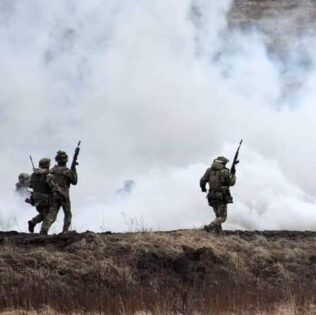
“The boys were sent into the attack with just their rifles,” he said. “There was no covering fire. No medical help. Many of them died from lack of care. Wounded soldiers were left on the field. Only the lightly wounded were helped. The commanders were afraid of losing any heavy weaponry…. Soldiers were forced at gunpoint to attack. The officers openly said: ‘You are just meat for us and nothing more. You can forget about the medals and bonuses you were promised. You simply don’t exist.'”
Andrei complained that Russian forces were often shelled by their own artillery.
“The front lines are very close, 100 to 150 meters,” Ivan explained. “I can only suppose that either the ‘artillerymen’ were just mobilized guys who didn’t know how to use their weaponry or that the guys who were directing fire were themselves mobilized guys without real experience. But something is definitely wrong there.”
In mid-March, Ivan heard from Andrei again. He said that of the 300 men who had traveled with him from Omsk, he believed only three survived. Ivan quoted Andrei’s words as he remembered them: “I came here to defend my motherland. But it turns out that I am just dying in a foreign land. And the guys who came with me have died in this foreign land for God only knows what.”
Andrei told him, Ivan said, that it was a “complete disaster” there and that he intended to refuse to fight anymore. “He said he didn’t know what would happen to him after he refused,” Ivan told RFE/RL.
Back in the Altai region settlement of Volchikha, Andrei’s wife and small child are waiting for him, as is his mother. His wife told RFE/RL she regularly writes to the local military commission seeking information about her husband’s unit. She has been repeatedly told it is currently assigned to “territorial defense” in areas controlled by the Russian military.
 Soldier of Fortune Magazine The Journal of Professional Adventurers
Soldier of Fortune Magazine The Journal of Professional Adventurers


